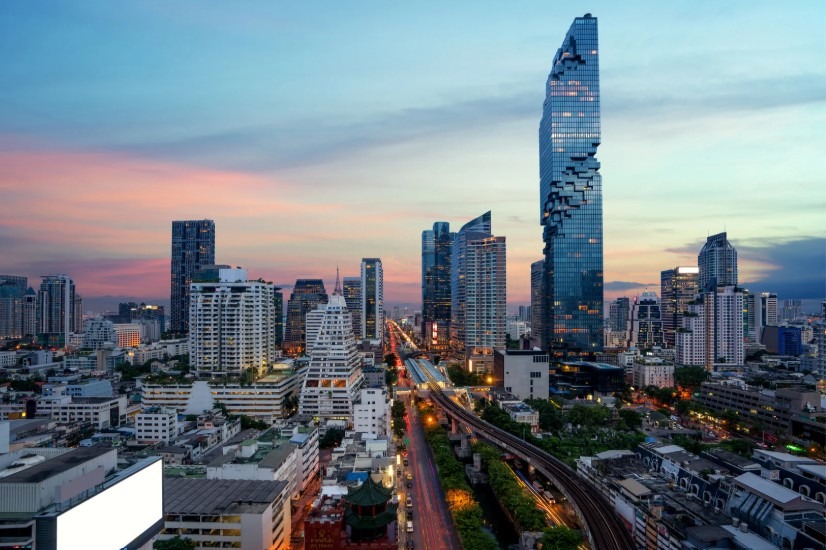Short-term leasing, such as Airbnb has become more popular in Thailand’s major condominium and house rental markets. However, without a proper Hotel License, these transactions are violating Thai laws.
According to Section 4 of the Hotel Act B.E. 2547 (2004), “hotel” means an accommodation established for business purposes of providing temporary accommodation services for travelers or any other person in exchange for compensation, but not including:
- accommodation services carried out by a government agency, or for charitable or educational purposes, but not on profit or income sharing basis;
- accommodation established for the purpose of providing housing services paid for 30 days or more paid;
- any other accommodation prescribed in Ministerial Regulations.
Therefore, ANY business activity providing paid accommodations for less than 30 days is deemed to be a hotel, which legally requires such Individual or Company to obtain a Hotel License.
People or legal entities who rent out their rooms via Airbnb (or other short-term accommodation arrangements) on a daily or weekly basis are acting illegally under the laws of Thailand.
In case a leasehold tenant sublets their condominium on a short-term basis without consent from the landlord/lessor, the tenant is breaking the laws under the Hotel Act and also (post probably) violating their original lease terms and conditions on subletting property to a third party. The landlord shall have the right to terminate the lease according to these lease terms and conditions &/or on legal grounds.
In case of a Condominium Juristic Person, normally they do not have any legal liability if the condo unit owners rent out their units via any short-term accommodation arrangements, unless the Condominium Juristic Person agrees and consents their condominium unit owners to do so (i.e., the Juristic should not allow its members to engage in short-term accommodation arrangements).
The Condominium Juristic Person also has the right to claim against the owner of the condo unit who illegally rents out their room(s) on a short-term basis. Recent Court rulings handed down to condominium unit owners in Hua Hin successfully claimed against condo owners who engaged in short-term accommodation arrangements, having the Condominium Juristic Person as a plaintiff and the condominium unit owners as defendants. It was finally judged that short-term rent of such condominium units was illegal and the Court ordered the owners to pay fines for leasing their residential units to Thai and foreign tourists without a proper Hotel License.
For a villa or house that has less than 4 bedrooms and has total guests of not more than 20 people, it is not categorized as a hotel, and falls into the category which does not require a Hotel License, but instead is known as a Home Stay. The Ministerial Regulations announced in 2008 allow for an exemption from the Hotel Act for Home Stay accommodations applicable to a villa or housing development which comply with the following conditions:
- having not more than four rooms on all floors in all buildings;
- have a total service capacity of no more than twenty guests;
- operates as a small business providing only a supplemental added source of income for the owners (i.e., not their main source of income).
If the business is in-line with those requirements above, it is not required to obtain for the Hotel License, but they must submit an application to the District Office in order to obtain permission for being a “Non-Hotel Accommodation Business” before engaging in any short-term accommodation arrangements.
There are Tax Exposures, too…
Apart from the legal issues mentioned above, there are also tax matters that must be carefully considered. Foreigners or Thais who are offering their property (e.g., condo unit, spare room in a house, apartment, etc.) for short-term rental are subject to Personal Income Tax (“PIT”). Such PIT are required under the Thai Revenue Code to be declared on rental income received via the Mid-Year Personal Income Tax Return form (PND.94) by the end of September each year, then also the Annual Personal Income Tax Return (PND.90) by the end of the March of the following year.
Similarly, in case a Company (whether Foreign or Thai) owns the property, they must declare rental income received via the Mid-Year Corporate Income Tax Return form (PND.51) and Annual Corporate Income Tax Return form (PND.50). The timing required to pay these taxes to the Thai Revenue Dept. for the PND.51 is within two months from the first half of each accounting period and for the PND.50 within 150 days from the end of each accounting period.
In addition, in case that those Foreigners or Thais who above rent out their property, including services (e.g., cleaning service, etc.), then these rental transactions will constitute a serviced apartment arrangement, which is also subject to Value Added Tax (VAT). In this regard, whether an individual or a company receives rental income exceeding THB 1.8 million, they are required to register themselves with the Thai Revenue Dept. as a “VAT operator” and issue legally compliant Tax Invoice upon the receipt of rental fees.






